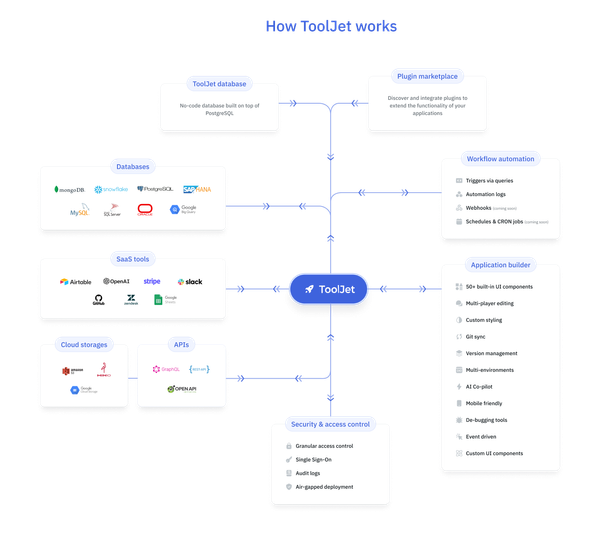Why I'm Taking a Stand Against Samsung's Layoffs
Boycotting Samsung: Corporate Greed and Its Toll on Humanity
Table of Content
As a consumer, I’ve always had a soft spot for Samsung products—smartphones, TVs, home appliances. But recently, something has shifted. When I learned about Samsung’s mass layoffs, prioritizing profits over people, I decided it was time to take a stand.
Corporate greed isn’t new, but in an era where companies have the power to impact millions of lives, it’s more dangerous than ever.
My boycott of Samsung isn’t just about one company—it's about fighting against a larger problem: profit-driven decisions that hurt workers, families, and society.

Why I’m Boycotting Samsung
Samsung’s decision to lay off thousands of employees for profit maximization highlights a growing trend in today’s corporate landscape. Companies that once thrived on innovation and customer loyalty are now focused solely on financial gains, often at the expense of their workforce.
Samsung is not alone in this. Tech giants across the globe are embracing layoffs as a "cost-cutting" measure, even when profits are soaring.
It’s deeply unsettling. Behind every layoff, there are real people—families losing income, individuals facing uncertainty, and communities being impacted.
As someone who believes in the value of human lives over corporate profit margins, I can no longer support a brand that puts financial gain ahead of people’s livelihoods.
Corporate Greed: A History of Exploitation
Corporate greed isn’t a new phenomenon. Let’s take a look at a few infamous examples:
- Enron Scandal (2001): Enron manipulated its financial statements to present a falsely healthy company, benefiting shareholders and executives. When the truth was uncovered, the company collapsed, and thousands of employees lost their jobs, pensions, and savings. Meanwhile, top executives walked away with millions.
- 2008 Financial Crisis: The greed of large banks like Lehman Brothers and AIG, who sold risky financial products for massive short-term profits, led to a global economic meltdown. Millions of people lost their homes, jobs, and life savings, while many of the executives responsible walked away with hefty bonuses.
- Amazon and Worker Conditions: While Amazon’s founder, Jeff Bezos, became the world’s richest man, reports emerged of warehouse workers being forced to work under grueling conditions, denied bathroom breaks, and paid low wages despite the company’s soaring profits.
- Microsoft Layoffs (2023):
In 2023, Microsoft, despite being one of the most profitable companies in the world, laid off 10,000 workers as part of a broader cost-cutting strategy. This came despite a $16.4 billion net income in just the last quarter of 2022. The layoffs were largely aimed at saving costs to increase returns for shareholders, furthering the idea that profits are prioritized over employee welfare. - Disney Layoffs (2023):
Disney, another iconic brand, laid off 7,000 workers in 2023 despite its solid financial performance. CEO Bob Iger described the layoffs as part of a $5.5 billion cost-cutting plan to increase profits. It’s another classic example of a company with a thriving business sacrificing employees to please shareholders. - Uber (2020):
At the height of the COVID-19 pandemic in 2020, Uber laid off about 14% of its global workforce, impacting 3,700 employees. This was done while the company was transitioning to a more automated model, emphasizing profits and cost-cutting measures, even though it had substantial investments and capital to weather the storm. - General Motors Layoffs (2018):
In 2018, General Motors (GM) announced the closure of five North American plants and the elimination of about 14,000 jobs, even though the company had earned a profit of $10.8 billion in 2017. GM claimed the cuts were necessary to prepare for the future of electric and autonomous vehicles, but the decision was widely criticized as prioritizing short-term gains and shareholder profits over workers.
Why Corporate Greed Is Bad for Humanity
- Impact on Workers: Layoffs often come without warning, leaving employees scrambling to find new jobs, cope with financial instability, and face emotional distress. The human toll is enormous. For example, Samsung’s layoffs, like those of many other large companies, may cut costs in the short term, but the long-term damage to families and communities is incalculable.
- Wider Economic Effects: When companies cut jobs, it creates a ripple effect. Local businesses suffer as unemployed workers cut back on spending, and social safety nets are strained as more people rely on unemployment benefits and welfare.
- Innovation Stagnation: Corporations obsessed with maximizing short-term profits often slash research and development (R&D) budgets, undermining long-term innovation. Many groundbreaking technologies, from the internet to medical advances, came from long-term investments. But a company fixated on immediate financial returns is less likely to take risks that drive meaningful progress.
- Erosion of Trust: When people see companies laying off employees while executives get bonuses, it erodes public trust. Samsung’s decision to cut jobs despite being highly profitable feeds into this narrative—where corporate leaders are perceived as prioritizing personal gain over collective well-being.
Why Corporate Greed Focuses on Profit Over People
The modern corporate structure incentivizes short-term profit above all else. Publicly traded companies are especially vulnerable to this, as they’re driven by quarterly earnings reports. Shareholders expect higher returns, and CEOs are judged based on how well they deliver financially.
Consider this: the average tenure of a CEO is around five years. During that time, they are rewarded for driving stock prices up, which often leads to cost-cutting measures like layoffs. The human consequences of these decisions are rarely considered.
Samsung’s situation is a prime example. As competition in the tech space intensifies, the company likely chose layoffs to maintain high profits and appease investors. Unfortunately, this means workers—many of whom have dedicated years to their jobs—are treated as expendable resources.
Why My Boycott Matters
I’m choosing to boycott Samsung because I believe in voting with my wallet. If enough consumers take a stand against these practices, we send a clear message that prioritizing profits over people is unacceptable. This isn’t about hurting Samsung as a company; it’s about raising awareness that we won’t support brands that exploit their workforce for short-term gains.
As consumers, we have power. Every time we make a purchase, we are endorsing the values of the company we buy from. For me, that means no more Samsung products until the company demonstrates that it values its employees as much as its profits.
On a personal note, my decision to boycott Samsung isn’t my first stand against corporate greed. I’ve already boycotted Uber and Disney for their massive layoffs and questionable business practices.
Additionally, I haven’t used Microsoft products since 2003. For me, these choices go beyond simple consumer decisions—they’re about taking a stand for the values I believe in: fairness, transparency, and putting people before profits.
Every time a corporation chooses short-term profit over the well-being of its employees, it reinforces the need for us, as consumers, to make our voices heard.






![13 Free PoS (Point of Sale) Systems for Retails, Cafes, and Restaurants [2024 Edition]](/content/images/size/w600/2024/10/pos--1--1.png)





